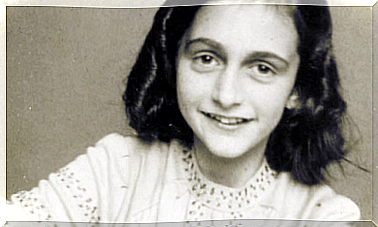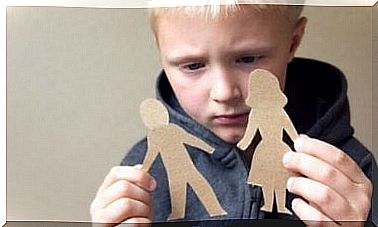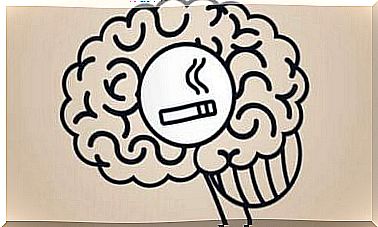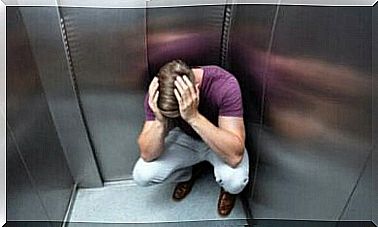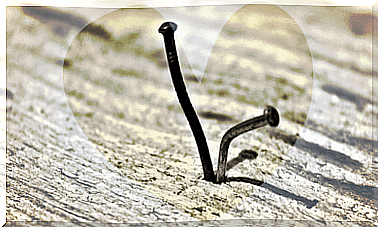Three Things I No Longer Do When I Get Anxiety

When I get anxiety, people often say “calm down, relax, you will feel better, you will see.” For a few minutes you succeed, but shortly afterwards this scary enemy reappears to take the air from your lungs.
This is because anxiety is not a disease, but a symptom. It is an echo of a vague, deep, formless problem that needs to be cleared away and processed.
If you read this, you probably recognize the feeling. It usually begins with a pressure on the chest, as if the demon from the famous Henrich Füssli painting “The Nightmare” sat on us to deprive us of our energy. Then comes the muscle pain, headaches, digestive problems and insomnia.
We must also not forget that the physical symptoms get worse with each passing day. For it is a deadly combination of distorted thoughts, mostly negative, and a constant sense of threat.
It also does not matter what we do – we can be on vacation. If our minds are caught in that dark, frightening tunnel full of the worst that can happen, we will not be helped to “relax”. Therefore, it is one of the things I have stopped trying to do when I get anxiety.
In these states of mind, when I can not think and reason clearly, there are many things I have stopped doing. We can do yoga, paint mandalas, listen to music or take a walk. All these activities are positive, relaxing and come with benefits. There is no doubt about that.
However, they are only temporary measures that do not address the fundamental problem.
In reality, successful treatment of anxiety processes lies in multidisciplinary approaches. Relaxation is very therapeutic, as well as support from relatives, exercise and a balanced diet. But we also need cognitive behavioral therapy to help us re-establish certain things and make changes.
Below we will take a look at how to tackle this reality in the best way. We’ll talk about things I no longer do when I get anxiety. Let’s treat our anxiety and send it out the door for good.

Anna works in marketing for an important company. She comes to work at eight every morning. But a few weeks ago, she started arriving late. The strange thing is that she leaves her home on time, just as usual.
But immediately when she is driving out on the highway to go to work, she turns around and drives to a cafe. There she drinks an herbal tea and tells herself not to think about anything for an hour; she just wants to relax.
As we can see from this small example, Anna escapes from the underlying problem. She does not feel like going to work. So now she comes to work too late and may have to take sick leave in the end. For the press, fear and anxiety will make her believe that she is incapable of living up to her responsibilities.
So what is the right thing to do in these situations?
These types of reactions are completely normal. Why? When our brain perceives a threat, it begins to release a lot of cortisol so that our bodies prepare for battle or flight.
- The problem with avoidance is that it makes the anxiety worse in the long run. It strengthens it.
- The more we repeat this escape behavior, the more we will see ourselves as people who are not capable of dealing with the situation. So the fear gets worse.
- In these scenarios, a useful strategy is to turn to instead of fleeing, avoiding or distracting ourselves to think through the situation with questions that can start with “what would happen if…?”
- What would happen if I told my boss that thing did not seem right?
- … If my boss told me I was right and my work life got better?
- … If I lost my job?
- What would happen if I put all my energy into looking for a job with potential?
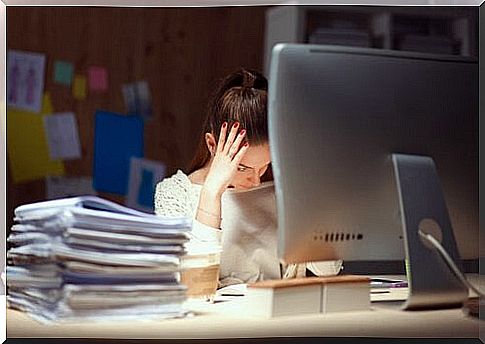
Constant, obsessed anxiety is the cognitive component of anxiety. Therefore, one of its worst side effects is that we lose the ability to reflect.
To be able to analyze things calmly, from a more logical and helpful perspective. That is why we must keep these aspects in mind.
- When something worries me, scares me or irritates me, my mind will have a natural tendency to focus on the negative. Not long after that, the feeling of worry and fear will worsen.
- One way to stop this vicious circle is to become aware of it.
- In these situations , it really helps to engage in progressive relaxation techniques. For example, diaphragmatic breathing. These are used to soothe symptoms such as muscle tension and internal agitation.
- Only when we see that our bodies are more relaxed and our senses clearer can we begin to break the circle of negative thoughts. Then we will introduce new alternatives. We will focus on the present instead of waiting for what is to come.
To defeat the demon of anxiety in our daily lives, we must give ourselves achievable, simple, logical, and positive short-term goals. And we will use internal dialogue that acts more like a friend than an enemy.
Pondering is one thing I no longer do when I get anxiety.

Something we should be very clear about is that it is not logical to want to erase anxiety from our lives. It will always be there. It’s part of being human. Strange as it may seem, it actually fulfills a function for our survival and to adapt to the environment.
Let us reflect for a moment on these ideas to gain a little more understanding:
- We can coexist with our anxiety as long as it does not become our enemy.
- The best way to coexist with anxiety is to let it be with us, but to keep track of it. We must control it and anticipate its triggers. If we can not do that, then anxiety will be the one to take control, without us realizing it.
- Anxiety becomes negative the moment we notice that our life has been blocked and limited. When it affects our relationships and our performance at work.
On the other hand, positive anxiety can be a useful psychological tool. This is what invites us to improve, anticipate risks to solve them, see opportunities to take advantage of them.
It is what frees us from apathy and passivity to make us capable of achieving our goals.
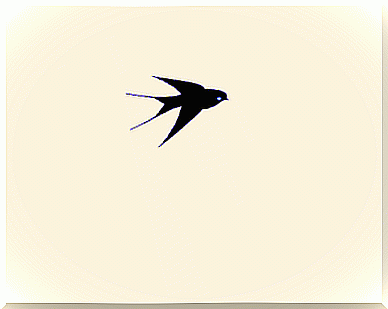
As you can see, there is more than one way to confront and process anxiety. In reality, there are many paths we can take.
But it all starts with understanding that anxiety is our mind that wants to go faster than life. Let’s slow down the rhythm and start with a healthier inner dialogue.


